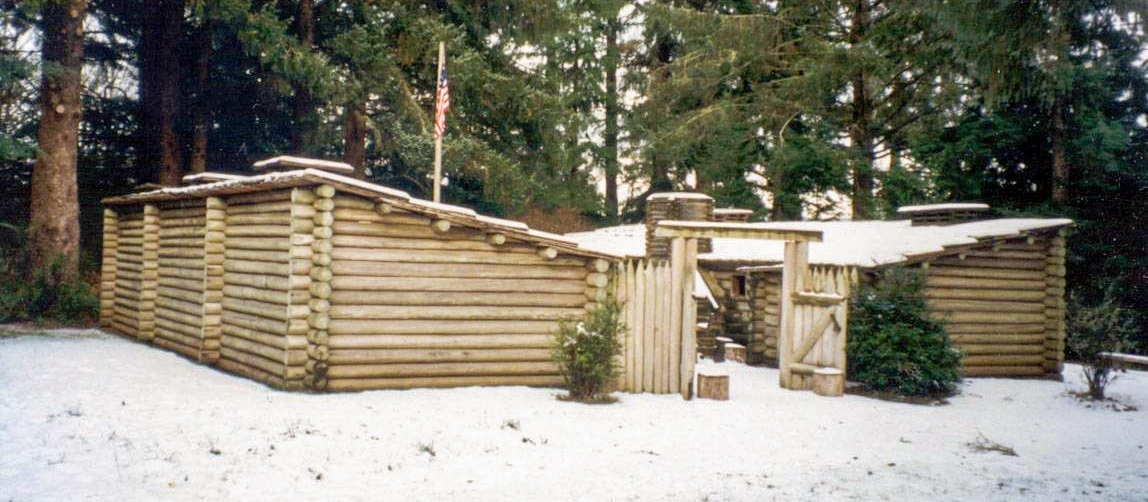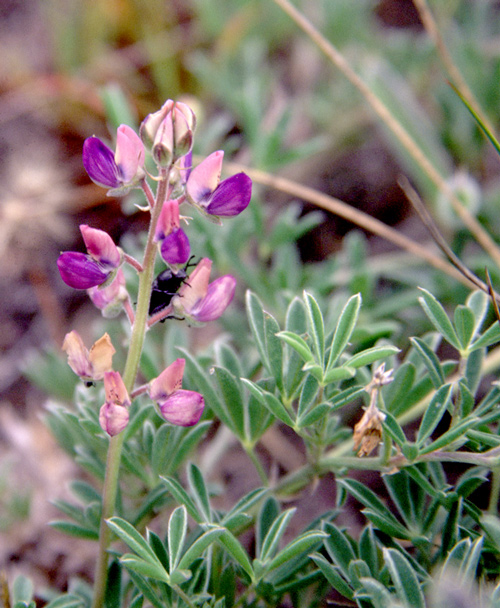At Fort Clatsop near present Astoria, Oregon, several Clatsop visitors are impressed with Drouillard‘s shooting skills. Lewis demonstrates his air gun and describes how Chinookan People use the seashore lupine and wapato plants.
The Astonishing Air Gun
by Yellowstone Public Radio[1]Originally aired weekdays by Yellowstone Public Radio during the Bicentennial observance of 2003-2006. Narrated by Hal Hansen. Scripts by Whit Hansen and Ed Jacobson. Produced by Leni Holliman. © … Continue reading
Superior Marksmanship and Weaponry
The [Clatsop] Indians witnissed Drewyer‘s shooting some of those Elk which has given them a very exalted opinion of us as marksmen and the superior excellence of our rifles compared with their guns; this may probably be of service to us, as it will deter them from any acts of hostility if they have ever meditated any such.
—Meriwether Lewis
Astonishing Air Gun
My Air-gun also astonishes them very much, they cannot comprehend it’s shooting so often and without powder; and think that it is great medicine which comprehends every thing that is to them incomprehensible.—
—Meriwether Lewis
Agreeable Seashore Lupine
I observe no difference between the liquorice of this country and that common to many parts of the United States where it is also sometimes cultivated in our gardens. this plant delights in a deep loose sandy soil; here it grows very abundant and large; the natives roast it in the embers and pound it slightly with a small stick in order to make it seperate more readily from the strong liggament which forms the center of the root; this the natives discard and chew and swallow the ballance of the root . . . . this root when roasted possesses an agreeable flavour not unlike the sweet pittaitoe.
—Meriwether Lewis
Most Valuable Wapato
the most valuable of their roots is foreign to this neighbourhood I mean the Wappetoe [wapato], or the bulb of the Sagitifolia or common arrow head, which grows in great abundance in the marshey grounds of that beatifull and firtile valley on the Columbia commencing just above the entrance of Quicksand [Sandy] River
—Meriwether Lewis
Weather Diary
aspect of the weather at rise
Wind at rise
Weather at 4 OC. P.M. Wind at 4 OC. P.M. cloudy after rain & snow S E cloudy after rain, hail, & snow E this morning the snow covered the ground and mas cooler than any wether we have had, but no ice
—Meriwether Lewis[2]To assist the reader, the editor of this web page has omitted the “Day of the month” column and spelled out some abbreviations.
Experience the Lewis and Clark Trail
The Lewis and Clark Trail Experience—our sister site at lewisandclark.travel—connects the world to people and places on the Lewis and Clark Trail.
Plan a trip related to January 24, 1806:

Fort Clatsop is a High Potential Historic Site along the Lewis and Clark National Historic Trail managed by the U.S. National Park Service. The site is managed by the Lewis and Clark National and State Historic Parks.
Notes
| ↑1 | Originally aired weekdays by Yellowstone Public Radio during the Bicentennial observance of 2003-2006. Narrated by Hal Hansen. Scripts by Whit Hansen and Ed Jacobson. Produced by Leni Holliman. © 2003 by Yellowstone Public Radio. |
|---|---|
| ↑2 | To assist the reader, the editor of this web page has omitted the “Day of the month” column and spelled out some abbreviations. |




